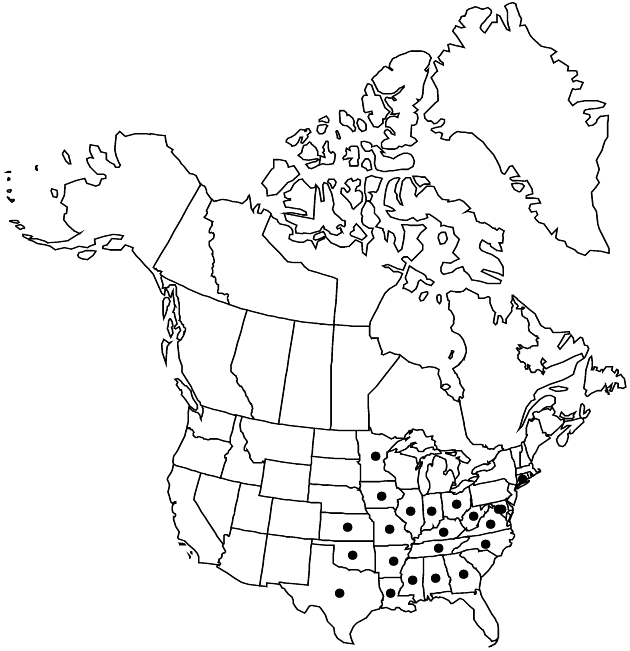Difference between revisions of "Ambrosia bidentata"
Fl. Bor.-Amer. 2: 182. 1803.
FNA>Volume Importer |
FNA>Volume Importer |
(No difference)
| |
Revision as of 18:47, 24 September 2019
Annuals, 10–30(–100+) cm. Stems erect. Leaves mostly opposite; petioles 0–0.5 mm; blades ± lanceolate to lance-linear, 15–40+ × 3–6(–10+) mm, bases rounded to cordate, margins entire or with (1–)2(–4) basal lobes, abaxial and adaxial faces ± piloso-hispid and gland-dotted. Pistillate heads clustered, proximal to staminates; florets 1. Staminate heads: peduncles 0–0.5 mm; involucres obliquely cup-shaped (lateral lobe longer than others), 2.5–4 mm diam., piloso-hispid; florets 6–8+. Burs: bodies pyramidal, 5–8 mm, piloso-hispid, spines 4(–5), ± distal, ± acerose, 0.5–1 mm, tips straight.
Phenology: Flowering Jul–Oct.
Habitat: Dry, disturbed sites
Elevation: 200–500 m
Distribution

Ala., Ark., Conn., D.C., Ga., Ill., Ind., Iowa, Kans., Ky., La., Md., Minn., Miss., Mo., N.C., Ohio, Okla., Tenn., Tex., Va., W.Va.
Discussion
Hybrids between Ambrosia bidentata and A. trifida have been recorded.
Selected References
None.